The $100 Startup
|
|

The $100 startup by Chris Guillebeau is an insightful book that contains many real-life case studies. It describes the possibility of starting and running a successful business with a tiny team. It also gives great insight on how you can start a small business of your own, giving you the ability to live on your own terms- from positioning yourself, finding your audience and prospects, creating your products or services, marketing, scaling and leveraging.
Guillebeau identified three key areas to start a business: a product/service people are willing to pay for, a group of people who are willing to pay for it such value and a way to get paid. To succeed in business, you need to merge your passion and your skill with something that is useful and essential to other people. If you focus on providing value above all else, your business will be successful. The value in this sense means ‘helping people.’ A vast majority of people want more of some things (money, time, love) and less of other things (debt, stress, pain). The key is to focus on your added value or what pain you take away to improve their life. Give people what they really want and not what you think they should have or want instead.
The author explains that not every passion or hobby is really worth building into a business and as incredible as it sounds, not everyone will want to have a business based on passion or hobby. Many ‘follow-your-passion’ businesses are built on something indirectly related and not the passion or hobby itself. There’s nothing wrong with a hobby, but if you’re operating a business, the primary goal is to make money, that’s it. Short term or long term, just make sure that making money is the focus.
A ubiquitous characteristic of successful startups is that they operate on a “plan as you go” basis. This gives the startup the opportunity to respond to the changing needs of its customers yet still get your business out as soon as possible with a bias toward action. One common mistake is thinking about your audience in terms of categories such as age, race, and gender. Instead, Chris Guillebeau recommends thinking of them in terms of shared beliefs, interests and values. A survey to understand customers and prospect is a good strategy, as long as it is concrete. The more specific and shorter the better.
When creating an offer, think carefully about the possible objections and then respond to them in advance. There is a difference between a good offer and a great offer, urgency. Immediately after a customer purchases something, that customer is hiring you. Look for small but meaningful ways to go above and beyond their expectations. They are not just buying a product or service from you, they are walking the experience with you.
It is vital to work on your business daily. Part-time or full time, work on your business every day and focus that work into key activities that improve the customer experience. Avoid just by responding to an urgent needs that accurate.
Perhaps one of my favorite takeaways from this book is the advice to leverage skills and contacts. This approach places you in more than one place at the same time with outsourcing, affiliate recruitment, and partnerships. Ideally, you should be able to grow the business without dramatically increasing the workload, allowing you to scale without hiring more people when you make careful choices.
Select two to three metrics that are the lifeblood of your business, then check them monthly.
In conclusion, a business that is scalable is both teachable and valuable. If you ever want to sell your business, you’ll need to build teams and reduce owner dependency.
THE BIG THREE – KEY POINTS
Key point #1: Keep it simple
Key point #2: Value action over plans
Key point #3: Set your own terms
One Last Thing
“A desk is a dangerous place from which to view the world.” —JOHN LE CARRÉ” ― Chris Guillebeau, The $100 Startup



Leave a Reply
Want to join the discussion?Feel free to contribute!